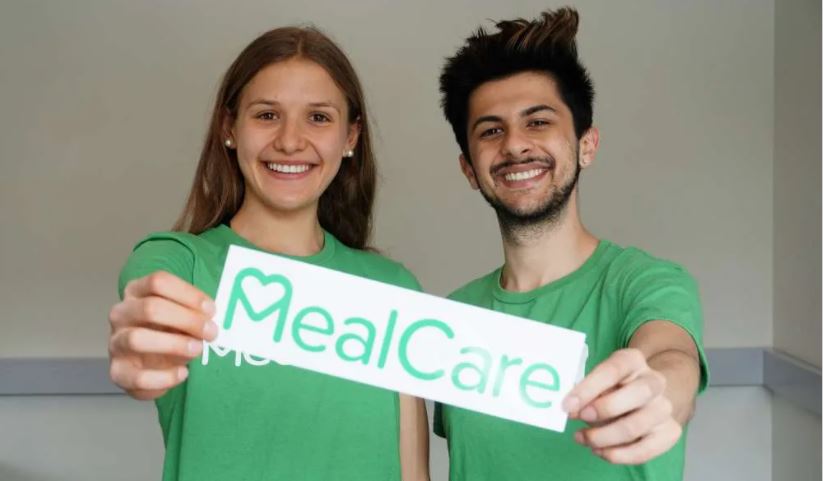The University of Guelph says two of its students are celebrating a major milestone this month by donating 16,000 pounds of food through an initiative they helped co-found called MealCare Guelph.

The program collects campus-prepared food, diverts it from the landfills and donates it to local charities.
MealCare Guelph launched three years ago by students Kiana Gibson and David Sahai and is now made up of 20 volunteers who collect leftovers from food providers on campus and donate them.
The 16,000-pound milestone comes as the struggle to access high-quality food in Guelph for some has been made all too apparent by the COVID-19 pandemic.
“To reach 16,000 pounds feels incredible and it’s exciting that we’ve come so far,” said Sahai. “It feels really amazing that we have been able to continue to have an impact through this pandemic because food insecurity is a problem now more than ever.”
MealCare first started in 2016 at McGill University and it was Gibson’s idea to launch a Guelph chapter in her first year after asking about what happens to leftovers on campus.
Before MealCare, the university would donate to the campus food bank after large events, but regular donations of food were not happening.

Get breaking National news
“As anyone who has eaten on the U of G campus knows, the food that is served here is absolutely incredible, and it made no sense to me that of all the chefs’ effort went to waste, especially when it’s perfectly edible,” Gibson said.
The university said there’s a lot more to donating leftover food than just setting food aside as it also needs to be packaged, labelled and stored in fridges.
Volunteers need to co-ordinate pickups for each local group as well.
“So that’s where MealCare comes in. We really act as the middle person to make those arrangements and to ensure the food gets to those who could benefit most from it,” Gibson said.
The initiative started out small with just Sahai and Gibson making time between classes to deliver leftovers to the campus student food bank.
“We would carry food across campus in a borrowed wheelbarrow that got stuck in every snowbank and while we got a great workout, we quickly realized that MealCare had the potential to become something far greater than ourselves. So we went to classes in search of volunteers to join our mission,” Gibson said.
They became an accredited Central Student Association club this past fall, which allowed them to do further outreach events on campus and expanded operations to donate food to Lakeside Hope House.
When the pandemic hit, organizations accepting donations had to close their doors, including the student food bank, and hospitality services scaled back as students left campus.
“That was quite the challenge and there was a time we weren’t sure we would be able to keep it going,” said Sahai.
By they’ve managed to continue their food donations with the Royal City Mission and Wyndham House.

Gibson said the experience has taught her about communication, co-ordination, leadership and the power of students and community.
“MealCare has become so much more than just Dave and me, it’s a whole team of passionate volunteers working toward a common goal,” she said.
Sahai agrees with his partner but said it also gave him a good look at the origins of food insecurity and the impacts it has on mental health and chronic physical disease.
MealCare Guelph will continue operations under COVID-19 guidelines throughout the summer and will welcome a new team of volunteers in the fall.








Comments
Want to discuss? Please read our Commenting Policy first.